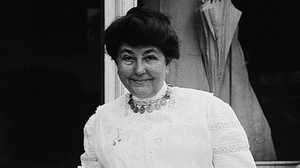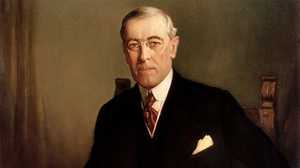Wilson's Election in 1912

Woodrow Wilson, then governor of New Jersey, was the Democratic Party's candidate for the presidential election of 1912. The country faced problems that the founding fathers had never imagined. The changes in urbanization and industrialization that the United States had undergone since the 1880s were so massive that government urgently needed to develop new approaches to its role. America had to reorder itself, many believed, and so did progressive Woodrow Wilson.
Serious candidates raised the discourse of the election beyond personality to political philosophy. Representing big business and the status quo was the conservative Republican incumbent, President William Howard Taft. In the middle and appealing to the reform-minded majority of Americans was former president Theodore Roosevelt, nominated by the newly founded Progressive Party, also known as the Bull Moose Party. On the extreme left was the labor leader and Socialist Party nominee Eugene Debs, who told his supporters it was time for the working class to run America.
Wilson and Roosevelt, both reformers, were trying to win the voters in the middle. Wilson was perceived as cold and aloof; one reporter said shaking his hand was like shaking a dead fish. In contrast, the charismatic Roosevelt appealed to people with his bluster and back-slapping. Wilson's best hope against Roosevelt was to crisscross the country, speaking directly to the voters about a "New Freedom" designed to help what he called "the man on the make." This was a middle-class man who aspired to the property or business-owning class. By the summer of 1912, Wilson had carved out a solid center of people who wanted change.
On election night, Wilson retreated home to his Princeton residence to await the nation's verdict with his family. After dinner he read Ellen and his daughters a poem by Browning about the importance of accepting God's will.
When the results were in, three-quarters of the American electorate had voted for parties of change. There was clearly a mandate for reform, but not necessarily for Wilson. He had garnered six million votes, but together Taft and Roosevelt had polled a million more. And there were another million who had chosen Debs and the Socialists.
Woodrow Wilson was president because the Republican Party had split.







